Reading comprehension Elementary Phonics Worksheets for Ages 3-9
9 filtered results
-
From - To
Unlock the joy of reading with our "Reading Comprehension Elementary Phonics Worksheets for Ages 3-9." Specifically designed for young learners, these engaging worksheets help children master the basics of phonics and vastly improve their reading comprehension skills. Each worksheet offers fun, interactive tasks, from identifying letter sounds to forming simple words and sentences. With visually appealing graphics and age-appropriate content, your child will not only learn to read but develop a lifelong love for it. Perfect for both classroom settings and home study, these worksheets are a valuable resource for fostering essential literacy skills.
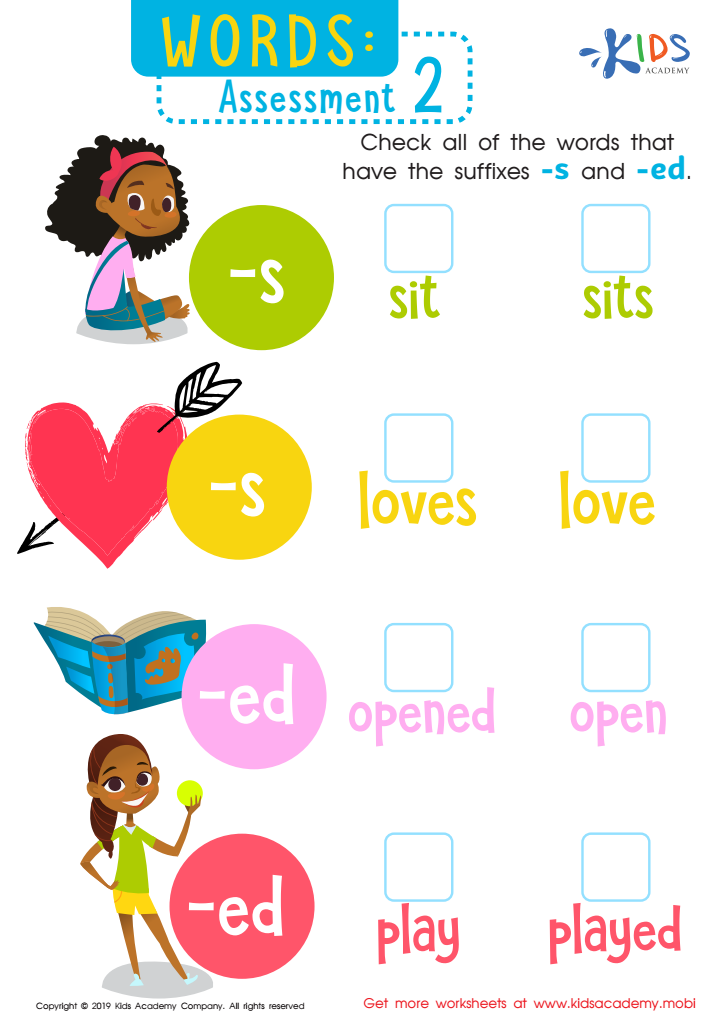

Words: Assessment 2 Worksheet
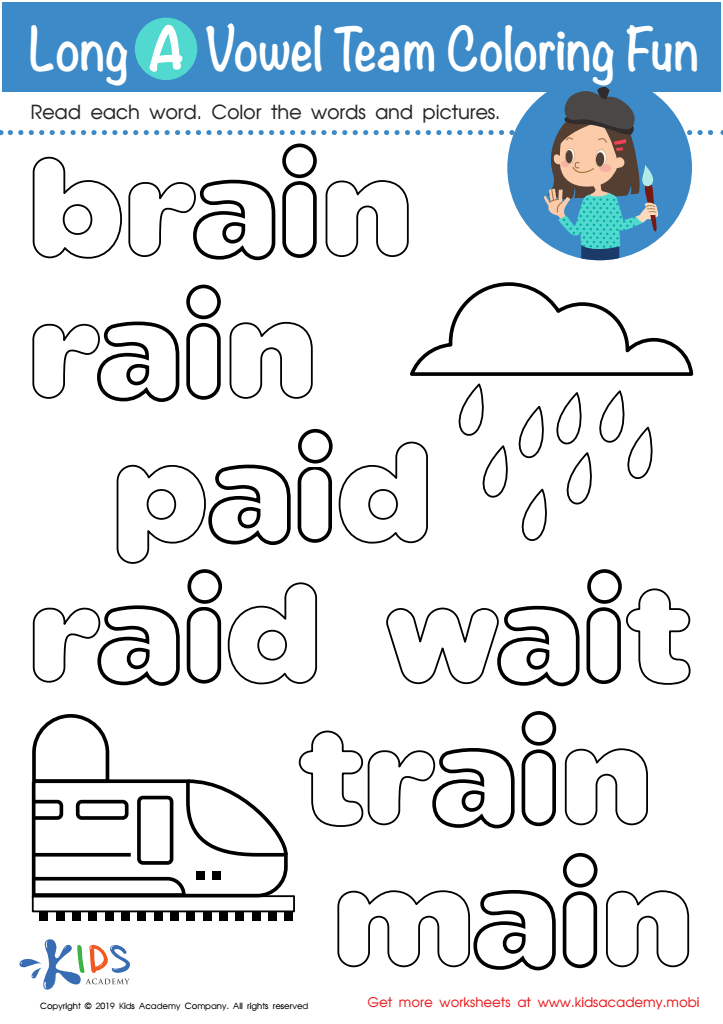

Long A Vowel Team Coloring Fun Worksheet
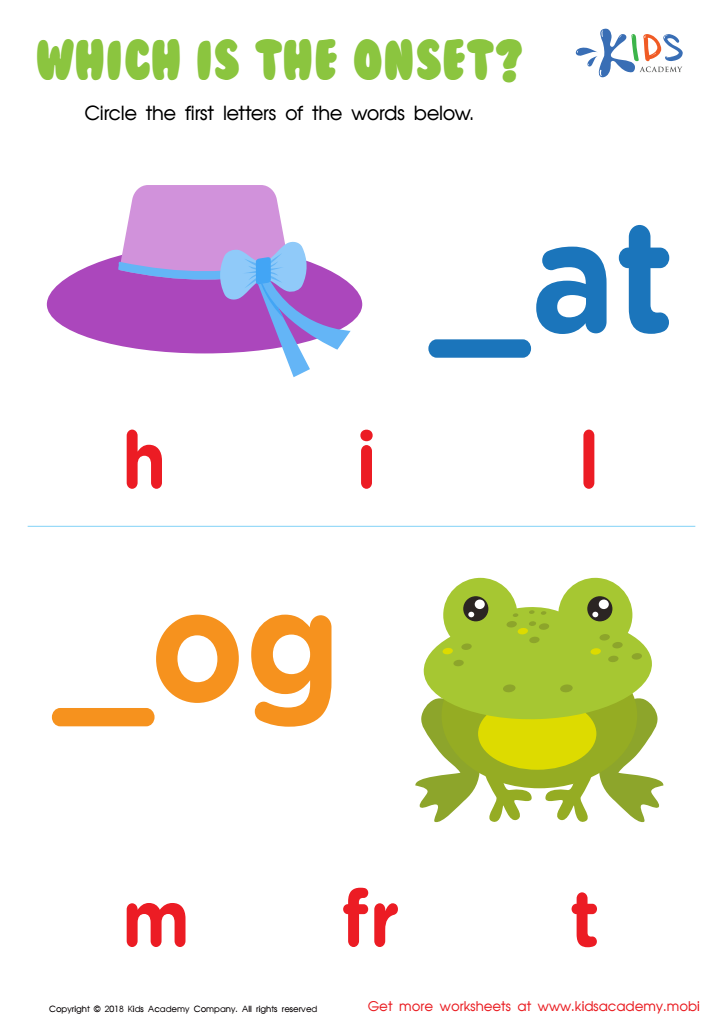

Which Is the Onset? Worksheet
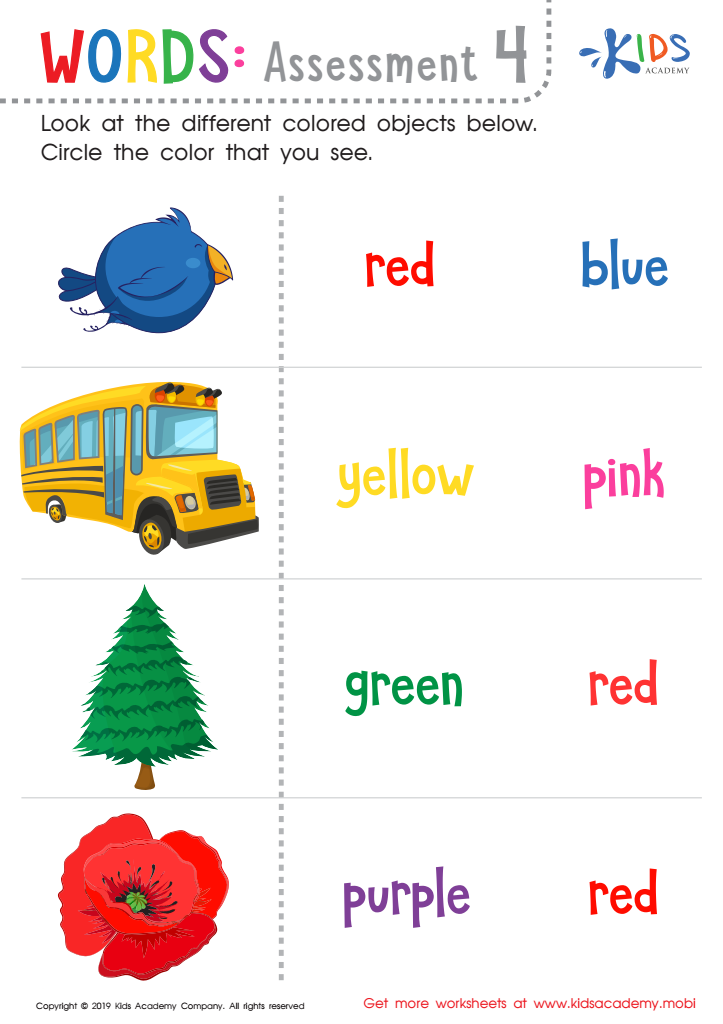

Words: Assessment 4 Worksheet
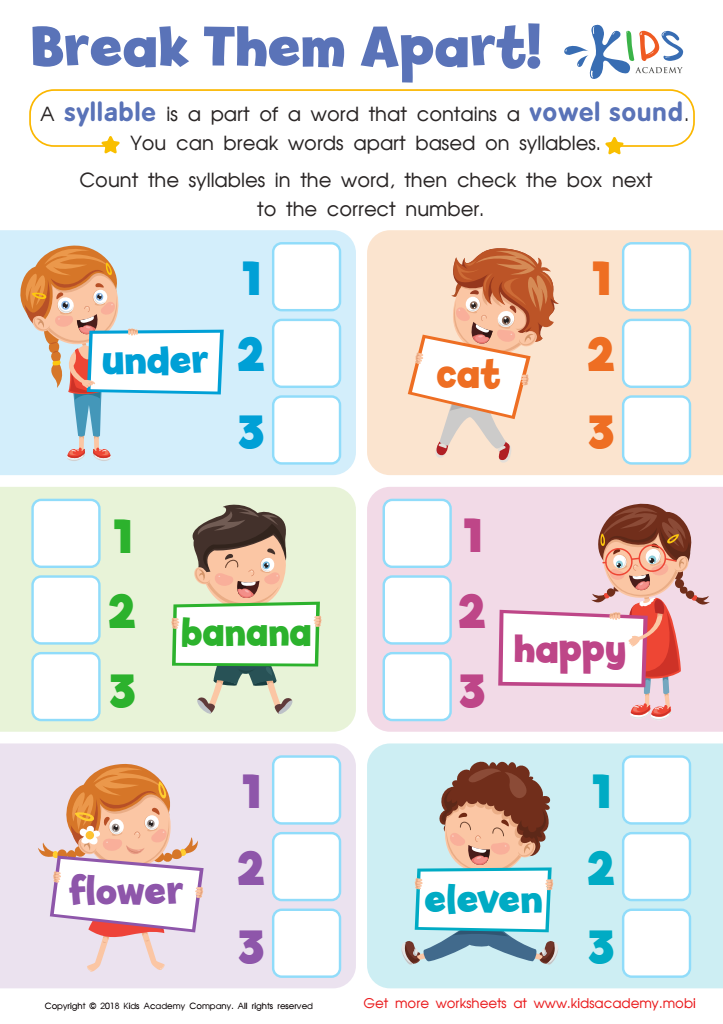

Reading: Break Them Apart Worksheet
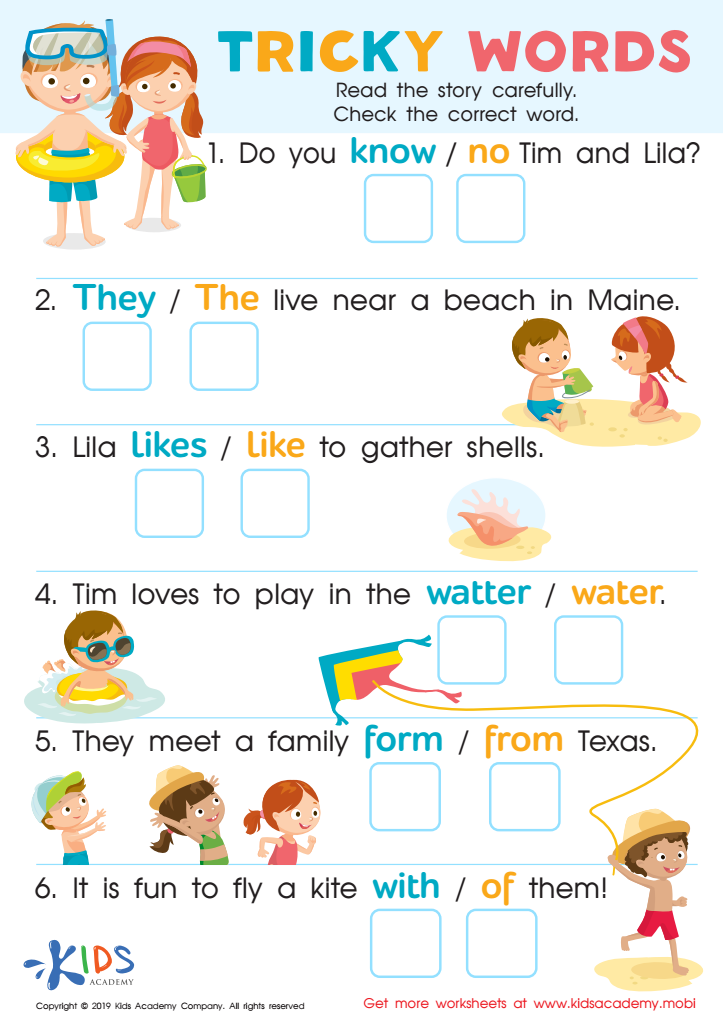

Tricky Words Worksheet


Phonics and Word Recognition: Assessment 1 Worksheet
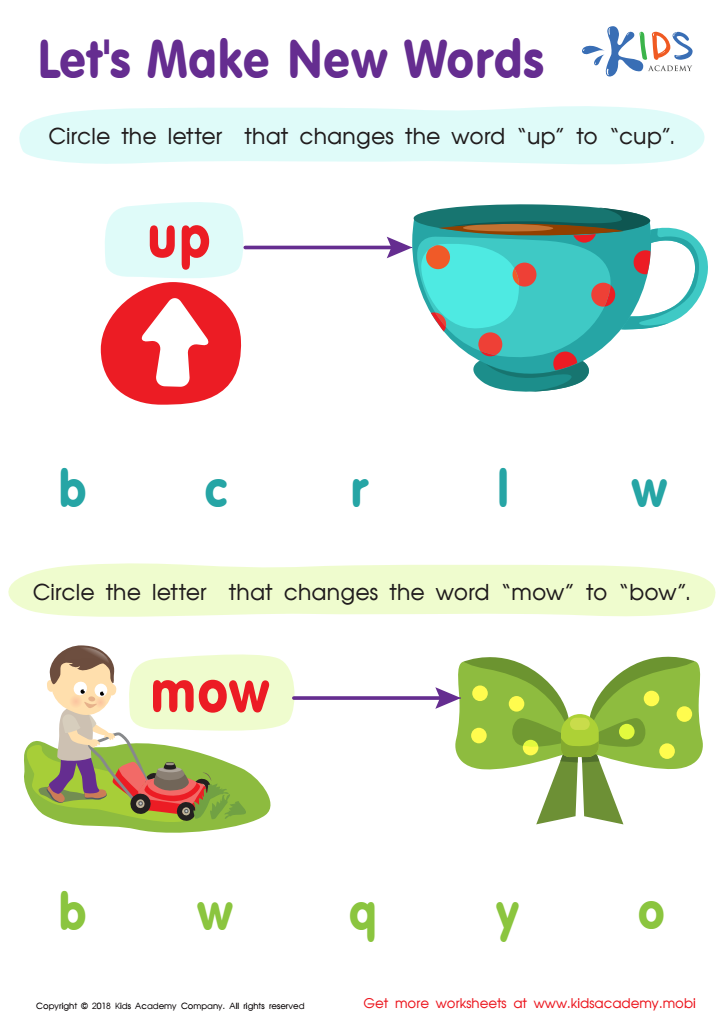

Let's Make New Words Worksheet


Long and Short E Worksheet
Parents and teachers should prioritize reading comprehension and elementary phonics for children aged 3-9 because these foundational skills are critical for lifelong learning and development. At this age, children's brains are highly receptive and primed for absorbing new information, making it the optimal period for language acquisition. Teaching phonics helps children understand the relationship between letters and sounds, enabling them to decode words and read fluently.
Reading comprehension, on the other hand, ensures that children not only read words accurately but also understand the meaning behind them. Comprehension skills allow children to follow stories, grasp key concepts, and draw conclusions, which enriches their overall learning experience. These skills lay a solid foundation for more complex literacy tasks as they progress in school.
Moreover, strong reading and comprehension abilities are linked to academic success in various subjects, including science, mathematics, and social studies. When children develop these skills early, they gain confidence and a love for reading, which fosters a positive attitude toward learning. Engaging with texts also enhances a child's vocabulary, critical thinking, and imagination. Therefore, investing time and resources into teaching reading comprehension and phonics during these foundational years is essential for shaping well-rounded, capable learners who are prepared for future academic challenges.
 Assign to My Students
Assign to My Students















